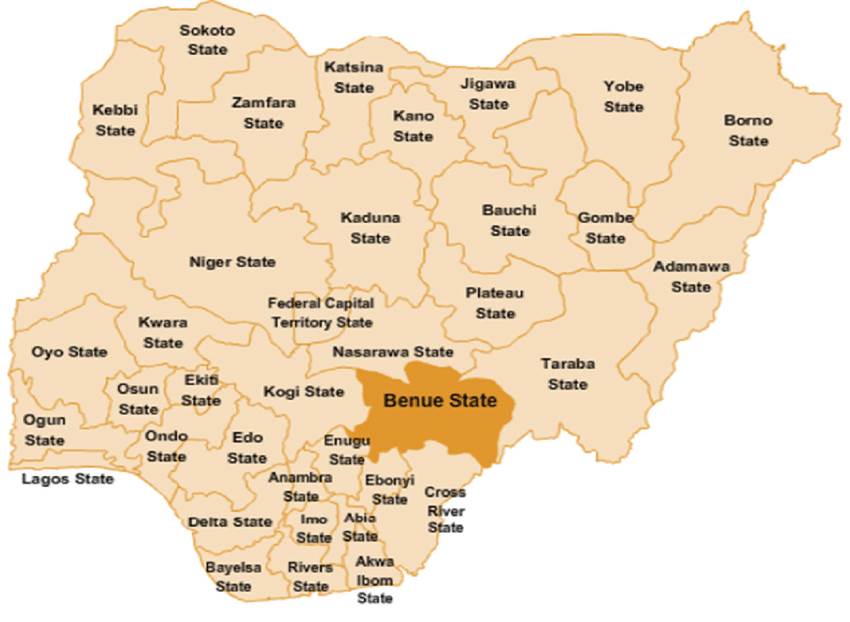Nigeria’s Benue state has been plunged into grief and mourning once again, as two separate attacks by armed individuals resulted in the deaths of at least 74 people this week. The tragedy is the latest in a string of violent clashes that have plagued the region, which has been the site of frequent confrontations between herders and farmers.
Catherine Anene, a police spokesperson for Benue state, reported that between Friday evening and Saturday morning, 28 people were found dead in a camp for internally-displaced persons in the Mgban local government area. Witnesses who were present at the time of the attack reported that gunmen arrived and opened fire indiscriminately, resulting in multiple fatalities.
The second attack occurred on Wednesday during a funeral in Umogidi village, which is part of Otukpo local government area in the same state. According to Bako Eje, the chairman of Otukpo, herdsmen killed villagers attending the funeral. Security adviser Paul Hemba reported that the aftermath of Wednesday’s attack revealed 46 corpses.
President Muhammadu Buhari expressed his deep disapproval of the violent incident in Benue State’s Umogidi community that left many dead, ordering the security forces to increase their presence and surveillance in the area. However, the government’s response to the ongoing crisis in Benue state and other parts of Nigeria has been criticized by many, who accuse it of failing to take decisive action to address the root causes of the conflict.
The Middle Belt region of Nigeria, where Benue is located, has been a hotbed of tension and violence for many years. The area is home to a difficult struggle for land control, with farmers and herders conflicting due to a combination of ethnic, religious, and other factors. As Nigeria’s population has grown, there has been an increase in demand for agricultural land, leaving less space for nomadic herders to graze their animals. This has resulted in tensions and conflict between the two groups.
In recent years, the situation in the Middle Belt has worsened, with violence on the rise due to the growth of the population and the resulting expansion of agriculture. The violence has forced many people to flee their homes and seek shelter in camps for internally-displaced persons, where they face difficult living conditions and limited access to basic necessities.
Nigeria’s rural areas have been particularly vulnerable to attacks due to a lack of security personnel available to respond quickly to requests for assistance from local citizens. The band of gunmen who took 80 people hostage in Zamfara state, an area notorious for criminal gangs snatching up villagers for ransom, is a reminder of the dire security situation in parts of the country.
The Commander-in-Chief has directed increased surveillance operations in the affected areas, but it remains to be seen if these measures will be enough to prevent further violence. The Nigerian government must address the underlying causes of the conflict, including land control, ethnicity, religion, and economic factors, in order to prevent further bloodshed.
As the government works to improve the security situation in the country, it must also address the humanitarian crisis facing the millions of Nigerians who have been displaced by the violence. The United Nations and other international organizations have called for increased assistance to be provided to those affected by the conflict, including food, shelter, and medical care.
The latest attacks in Benue state are a tragic reminder of the human cost of this conflict. The families of the deceased are left to mourn their loved ones, and the survivors are traumatized by the violence they have witnessed. It is time for the Nigerian government to take decisive action to address the root causes of the conflict and to provide assistance to those affected by the violence. Only then can the people of Nigeria hope for a future of peace and stability.
Image Credit: Research gate





